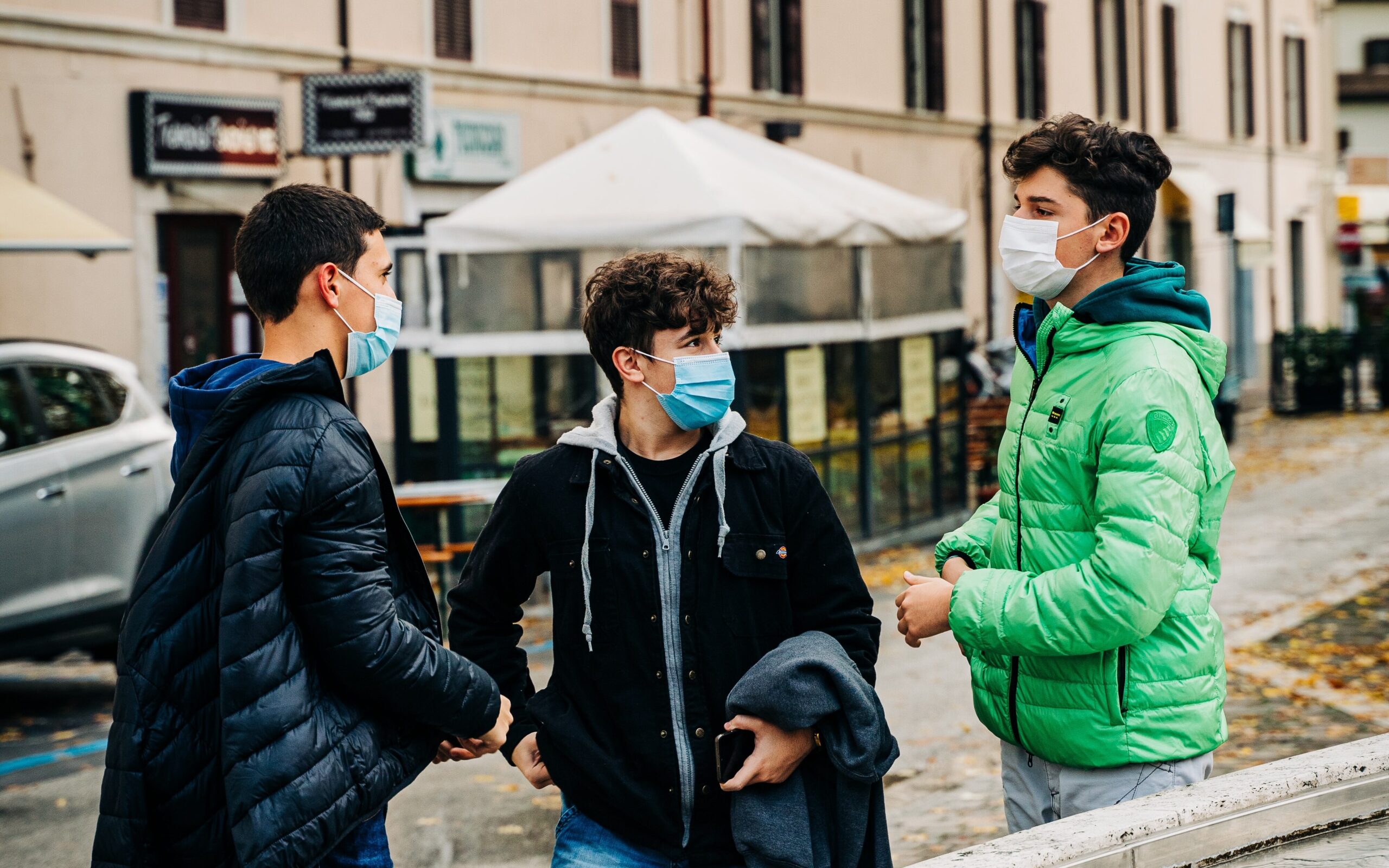
Healing Italy’s divide
Assunta Corbo highlights a heroic effort to bring hope to the young people of the Bel Paese’s poorest regions.
It was back in 1873 that the expression ‘the southern question’ was used for the first time, referring to the perception that there was a large gap in the socio-economic development of the regions of Southern Italy compared to those of the North. It was coined by the politician Antonio Billia to underline the complex economic situation of the South of Italy.
It’s a phrase that was so powerful that it entered common parlance and is still used today. Almost a century and a half have passed and, in some respects, Italy’s North/South divide is still significant.
In 2018, the Italian statistics agency, ISTAT, found that the per capita GDP of Italy’s North-East was more than 36,000 euros, followed by the North-West at 35,100 euros and the Centre at 31,600 euros. Southern Italy, with 19,000 euros of per capita income is still struggling.
This is the context in which the frightening levels of youth unemployment that afflict the South of Italy need to be understood. In December 2020, ISTAT released data that show a national unemployment rate of 22.2% in the 15-29 age group. That percentage rises to 31.4% for the 15-24 age group, with about 2.5 million young men and women out of work.
The highest concentration of unemployed people in Italy is in the South where Eurostat records, in the 15-24 age group, an unemployment rate of 51.1% in Sicily and 48.6% in Calabria. The Campania region follows, with a similarly high number of unemployed young people.

Young people, who, after all, represent our present and future, live in constant fear of not being able to find their path in life. This phenomenon has inevitable social consequences. It leads these young people to leave their home regions, thus continuing to hold back the South, or to get involved in illicit activities and petty crime.
This very real problem attracted the attention of Massimiliano Costa, CEO of Develhope, a software house, who decided to try to do something practical to help the kids of the South.
His far-sightedness led to the definition of a clear goal: to train young people without putting any barriers in their way and to get them into the world of work, taking account of the current state of the jobs market.
Microsoft estimates that 98 million new IT developers will be needed in the world by 2025. Thanks to the growth of tech, the category of developers is now considered among the most important to keep up with the digital transformation that is increasingly impacting the world’s production systems.
However, the difficulty of finding professionals in this area remains. Digital skills are required for seven out of 10 new hires, that’s equal to 3.2 million workers, while 1.6 million openings require the skills to be able to manage innovative solutions (robotics, Big Data Analytics and IoT) and Industry 4.0 (now worth 36.2% of all revenues). Yet 28.9% of all Italian job openings are hard to fill (about 940,000 openings) due to the inadequate skills base and a shortage of qualified candidates.
“All I’ve done is put together different trends,” Massimiliano Costa tells me. “For years I’ve noticed the severe difficulty of finding developers for some of my business projects. I put together my need for properly-trained workers with the story told by the unemployment data and I set myself a goal: to employ the children of the South so that they are not forced to leave their homeland for the North of the country which is constantly growing economically.”
Massimiliano is not new to projects that are inspired by empathy and the desire to respond to serious social problems.
While at the helm of ShareTheMeal, the fundraising app of the United Nations World Food Program, Massimiliano contributed to the donating, between 2015 and the present, of 80 million meals to some of the neediest populations in the world.
His app allows people to show solidarity through their smartphone and offers practical support to families living in underdeveloped and developing countries.
“This time, though, I wanted to look at Italy,” he said. “It’s my home country and I feel great gratitude to this land: I was born here, studied and worked here. Our Constitution is based on work and yet today we still face an absurd gap between North and South. It is a gap that we must try to fix,” says Massimiliano.
“I studied and researched the issue for about a year, putting together the data and observing what the market could offer. I looked to Sicily which has the most worrying area in terms of youth unemployment and I looked for a local partner who could help me adapt the project to the mentality of the South. That was important for me because I am originally from Northern Italy and I couldn’t proceed effectively without knowing the culture in which we were launching.”
In August 2019 Develhope started working on the first course which was launched the following October and saw the participation of 15 young people. Of these, eight were hired by Develhope at the end of the training period and one was hired by a local company.

In 2020, 500 applications were received for three courses aimed at recruiting new staff and one introducing software development. 45 students participated. Of these 27 found work after training: 14 were given contracts by Develhope and 13 work for other companies in the area.
In 2021 another three courses will run (April, June and September) which will involve about 200 enrolled students.
Develhope courses range from basic programming to more advanced modules, they last six months and are full time. Initially they were run with in-person workshops but are now taking place remotely due to the pandemic. However, this method may be used even after the health emergency so as to expand access to those who are not physically present on the island of Sicily.
A first selection of applicants takes place on the website www.develhope.co where candidates are asked to write a short biography of themselves and make a presentational video. A test is also undertaken to spot talent and passion and to ensure the relevant level of computer knowledge already acquired through training or personal interest.
“It is not a complex selection process but it is necessary. Our goal is not simply to train these young people, it is to place them into the world of work. After this preliminary online phase we move on to final interviews in which we try to understand better the attitudes of the students. We are looking for good problem-solving skills, a willingness to work within pressing deadlines and a good attitude to team work.”
These courses cost around 4000 euros but are offered to the young trainees free of charge. Payment is made only when they find work and can afford to pay something back.
If they don’t work they don’t pay. This is a choice that allows social and economic barriers to be eliminated. “The teachers are professional developers and this is an aspect that we care a lot about; the digital market changes very quickly, which is why teachers need to be developers who continue to operate outside teaching. All our trainers spend at least 20 per cent of their time developing apps and IT projects.”
The students belong to three broad groups. There are the very young who enrol after high school (16-18 years old), university students working towards a specialization, and a generic group of 20-35 year-olds looking for new professional opportunities. Most come from Sicily, having heard about the opportunities through word of mouth and having seen activities in their area, the next largest groups of students come from Campania and Puglia.
“We are in constant dialogue with both the institutions of Sicily who understand very well the model we propose, and with the Principals of colleges and high schools. We rely on them to help us find students who could be helped. Schools are an important link for us because they allow us to engage with young people before they have to deal with the world of work. The education system is a delicate issue on which there is still a lot of work to be done. There is a strong prejudice to be overcome.
The prejudice persists that young people in the South do not want to work. This is not true at all, what is missing is not commitment but opportunity,” says Massimiliano.
“The kids we come across are strong and determined, they know very well what it means not to find work and to be forced to emigrate. They have seen family, friends and relatives do just that. Many of them come to us after months of unemployment and being able to find a job in one of the most sought-after professions is a great source of great pride and achievement for them.”
“We find we have two big challenges. The first is related to gender. For cultural reasons there are very few female IT developers in Southern Italy and therefore very few girls seek entry into the profession. It’s not a problem of talent or attitude, they are present in abundance, it is more a question of the kids’ cultural heritage.
“In our courses, girls make up only 15-20% of students. What we have decided to do therefore is come up with new stories and exemplars of success. That way we can aspire to change the culture and increase familiarity among young women with these professions.

“During our first course, for example, we had Alba, 23 years old and a Bot enthusiast – a great talent and great passion. We wanted her to join the company. Today she works on important projects and develops native Android apps. Stories like hers need to be told and we believe it is important to start from the schools … that’s where we go to recruit more female students. We encourage them to believe in themselves and give themselves a chance. But there is still a lot to do: they are still too few girls signing up.
“The other significant problem we encountered is the number of young people dropping out during the training course. In the first course, out of 15 students six dropped out, while in the three courses in 2020 out of 45 participants 12 dropouts occurred. This is an important issue which requires study and reflection so as to evaluate solutions. We are talking about an incredible human capital that is ready to get involved but we need to accompany and support them because the young people come from a complex cultural and local context,” affirms Costa.
In the future, Develhope aims to take on 2,000 students every year and to establish a Tech for Good project (technology at the service of the local community) using locations confiscated from the Mafia as the bases for the courses.
In Italy, the National Agency for the Administration and Destination of Assets Seized and Confiscated from Organized Crime (ANBSC) oversees 17,450 properties of which 6,461 are in Sicily.
There is still a long way to go, of course. The whole question of the Italian South is a thorny one, and many are the nuances that have to be to take into account in dealing with it. The story of Develhope shows, however, that through good links with the local community, dialogue with the institutions and welcoming the real opportunities offered by the labour market, it is possible to offer new answers to old questions and provide practical opportunities for a new generation.
*This article first appeared in its original Italian version in the online magazine www.news48.it – a new initiative to promote and support constructive journalism.
Like what you’ve read? Consider supporting the work of Adamah by making a donation and help us keep exploring life’s big (and not so big) issues!
